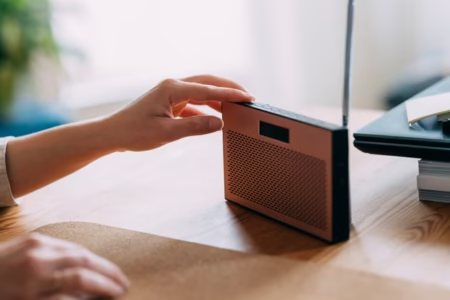A 47-year-old man in Hong Kong had to undergo a leg amputation after getting a rare flesh-eating infection following acupuncture treatment. Health experts are asking the public not to jump to conclusions, saying the case may be a one-time incident.
Man Loses Leg After Infection
The patient visited two traditional Chinese medicine clinics for acupuncture. Soon after, he developed an infection caused by Group A Streptococcus bacteria. He was diagnosed with necrotizing fasciitis, often called a “flesh-eating infection.” Two days later, doctors had to amputate his left lower leg to stop the infection from spreading.
Health Officials Investigate the Case
The Centre for Health Protection (CHP) began an investigation and collected environmental samples from one of the clinics. One sample tested positive for the same bacteria that infected the man.
The Department of Health suspects that the clinic may not have followed proper hygiene procedures. However, a final report is still pending as genetic testing continues to confirm the source of the infection.
Expert Says It’s an Isolated Case
Chan Wing-kwong, head of the Hong Kong Registered Chinese Medicine Practitioners Association, spoke out on Wednesday. He said that people should not be afraid of acupuncture when it is done by registered professionals.
“This is an isolated case,” Chan said during a radio interview. “So far, there has never been a case like this in Hong Kong. We must wait for a full investigation before making any judgments.”
He also said that the man had underlying health problems, which may have increased his risk of infection.
What Is Necrotizing Fasciitis?
Necrotizing fasciitis is a serious bacterial infection that spreads quickly in the body. It destroys skin, fat, and tissue. If not treated early, it can lead to organ failure and death.
The disease is rare but very dangerous. It can enter the body through small wounds or cuts and spreads through droplets or physical contact.
The Group A Streptococcus bacteria that caused this case is a common type that usually causes mild infections, such as sore throats. But in rare cases, it can cause severe illness, especially in older people or those with chronic illnesses like diabetes.
Safety Measures for Acupuncture
Chan explained that registered traditional Chinese medicine (TCM) practitioners follow strict safety rules. These include:
- Washing hands before and after treatment
- Using alcohol to clean the skin
- Using single-use needles only
- Avoiding contact with the needle tip
- Using fresh bedsheets or disinfecting treatment beds after each use
“These steps are followed in every clinic by registered professionals,” Chan said. “There is no need for public fear.”
Health Department Issues Hygiene Warning
The Department of Health reminded the public to take care of wounds and maintain good hygiene. It also asked all acupuncture clinics to follow infection control guidelines strictly.
It’s also important for patients with weakened immune systems to be extra careful when choosing treatment methods. Doctors suggest checking a clinic’s license and asking about hygiene practices before receiving any acupuncture or alternative treatment.
Not the First Time TCM Safety Has Been Questioned
Although this case is rare, it has raised new questions about the safety of alternative treatments in Hong Kong. Over the years, several cases have emerged involving complications from unlicensed or careless TCM practices.
In 2015, a woman suffered liver damage after taking herbal medicine from an unregistered clinic. In another case, a man was hospitalized due to a severe allergic reaction to Chinese herbs.
Because of these incidents, Hong Kong authorities have increased safety checks and public education about choosing registered TCM practitioners.
Public Reactions Mixed
Some Hongkongers are now more cautious about acupuncture. But others say they will continue using it, especially for pain relief, stress, and chronic conditions.
“I’ve had acupuncture many times with no problem,” said a local resident interviewed by Daljoog News. “It’s important to choose a clinic that follows hygiene rules.”







